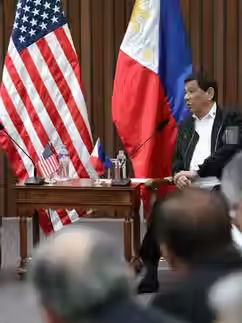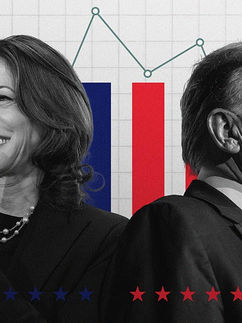The roaring trade of illicit antiquities

Elle Greaves
Throughout the Middle East and North African (MENA) regions, antiquities have long been sold on the black market. With rich historical structures and artefacts dating back 4,000 years, the MENA is a prime breeding ground for the lucrative business of plundering. In recent times, rebel groups, opportunistic individuals and terror organisations have sourced historical artefacts by either looting museums or archaeological excavation sites throughout the region. They then use a trade route through Turkey or Lebanon to sell their stolen treasures to unsuspecting Western dealers who aren’t aware how the artefacts were sourced. These sales have funnelled illegal monies to armed groups, terrorist organisations and criminal gangs allowing an illegitimate business of plundering artefacts to thrive.
The MENA region has long been the source of stolen antiquities. From the mid-19th century with the arrival of European explorers to the 1991 Gulf War and the rise of al-Qaeda in the 2000s, the region has had its history plundered and destroyed. Indeed, the British Museum, the Louvre in Paris and the Metropolitan in New York have long been accused of harbouring stolen antiquities from “wars, theft and duplicity”. The British Museum in particular has played host to an unofficial “stolen goods” tour which highlighted the stolen Rosetta Stone, a valuable translation-style stone which helped Egyptians decipher hieroglyphics in 196 BC.
More recently, the region has experienced more concerted ‘cultural terrorism’ associated with the rise of Daesh. Despite other countries in the region experiencing similar instability, Syria and Iraq have weathered the full force of Daesh’s efforts to form an Islamic caliphate which has involved the destruction of historical United Nations Educational, Scientific and Cultural Organisation (UNESCO) sites and archaeological looting.
Case in Point: Syria and Iraq
Around 12,000 years ago in 3,100 BC, the lands of Syria and Iraq were the birthplace of literature, politics, art, and advanced mathematics and astronomy. Known as Mesopotamia, or in admirer’s terms the “cradle of civilisation”, the region became one of the “richest archaeological components in the world”. Home to the fertile crescent, Mesopotamia and its city-states, such as Ur and Sumer, were the prototype of our modern civilisation for their advancements in irrigation and farming techniques. The region is also well known for its invention of the cuneiform script, the most wide-spread writing system throughout the MENA region. Such a rich cultural history and archetype for modern societies, the region is therefore a prime source of stolen antiquities from legal scripts to clay tablets.
Syria and Iraq are no strangers to plundering as a result of experiencing multiple periods of instability due to war and terrorism. War and instability have not only caused destruction on the surface of the region with the bombing of UNESCO World Heritage sites, but it has also meant that the illegal trade of stolen antiquities has intensified. With instability comes the need to make money fast - this is where looting and plundering comes in handy with its ability to be sourced for free and sold for a large profit. One major incident in 2003, saw the National Museum of Iraq in Baghdad ransacked of more than 15,000 artefacts. Syria also wore the brute force of Daesh’s takeover in 2014, with now all of Syria’s six certified cultural heritage sites wearing damage. These examples are not limited to Syria and Iraq, as Libya, Egypt, Yemen and Jordan have all experienced periods of instability and thus the destruction of their ancient artefacts.
An international conscience
Many historians have advocated for the return of stolen artefacts to their state of origin based on human rights law principles. French President Emmanuel Macron has even gone so far as to declare that “African cultural heritage can no longer remain a prisoner of European museums”. Most recently, the United States returned 17,000 artefacts which were stolen from Iraq during 1990. Among these looted items was the Gilgamesh Tablet – a Sumerian clay tablet which depicts the first ever inscription of the Epic of Gilgamesh. The American retail group Hobby Lobby Stores Inc bought this tablet and other biblical artefacts for more than a decade. In 2017, they agreed to forfeit thousands of illegally imported cultural items and pay a fine of USD$3 million as a result of ignoring claims from internal staff that the artefacts had in fact been stolen. Although statements of support and apologies for these acts of cultural terrorism have been made, the only way to truly redress such crimes is to return these spoils of war. We may not be able to right historical wrongs, but we can put an end to profiting from them.
Ongoing accountability
The returning of plundered artefacts is covered in international law. But while terror groups brazenly destroy cultural sites protected by UNESCO and international law, and looted items continue to circulate around the art world, the question is: what can be done now?
Enforcing international laws on individuals and institutions who may unknowingly display and harbour stolen goods is a grey zone. Many of the museums around the world who bought artefacts during periods of heightened instability in the MENA may have never known they were buying from a black market dealer. Without this complicity, it is even harder to hold them accountable for returning such items.
Perhaps then, it should be the responsibility of diplomats and leaders to encourage the repatriation of cultural property. This may involve the introduction of due diligence standards for acquiring artefacts, offering incentives for big corporations to surrender stolen artefacts and to facilitate mutually beneficial repatriation agreements. These are just a number of methods which governments can currently enforce. However, there is a long road ahead to ensure an entire region’s history isn’t plundered.
Elle Greaves is the Middle East and North Africa Regional Correspondent for Young Diplomats Society. She is a qualified lawyer and has a special interest in public international law, modern weapons, religious extremism and counterterrorism.

















Comments